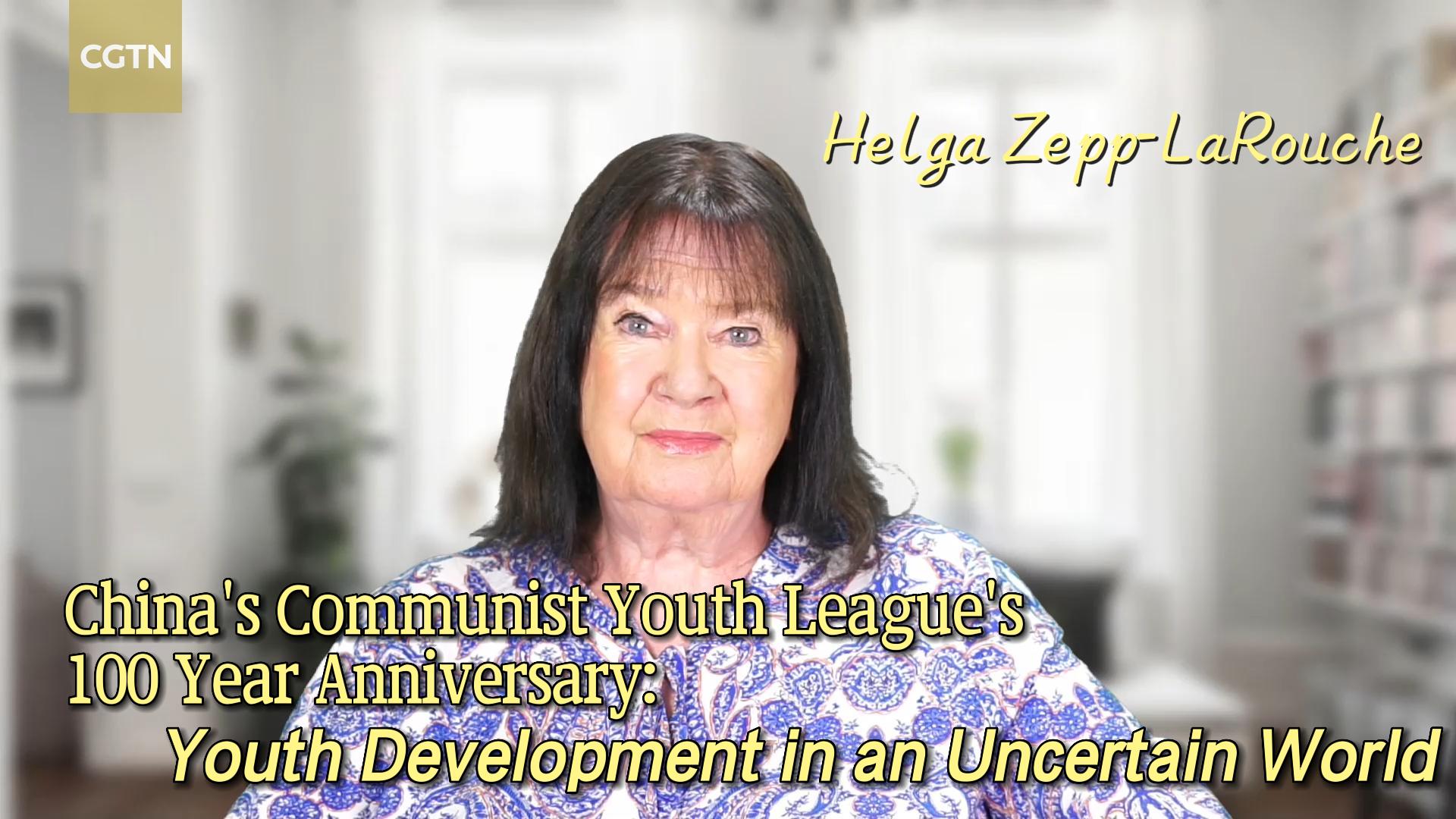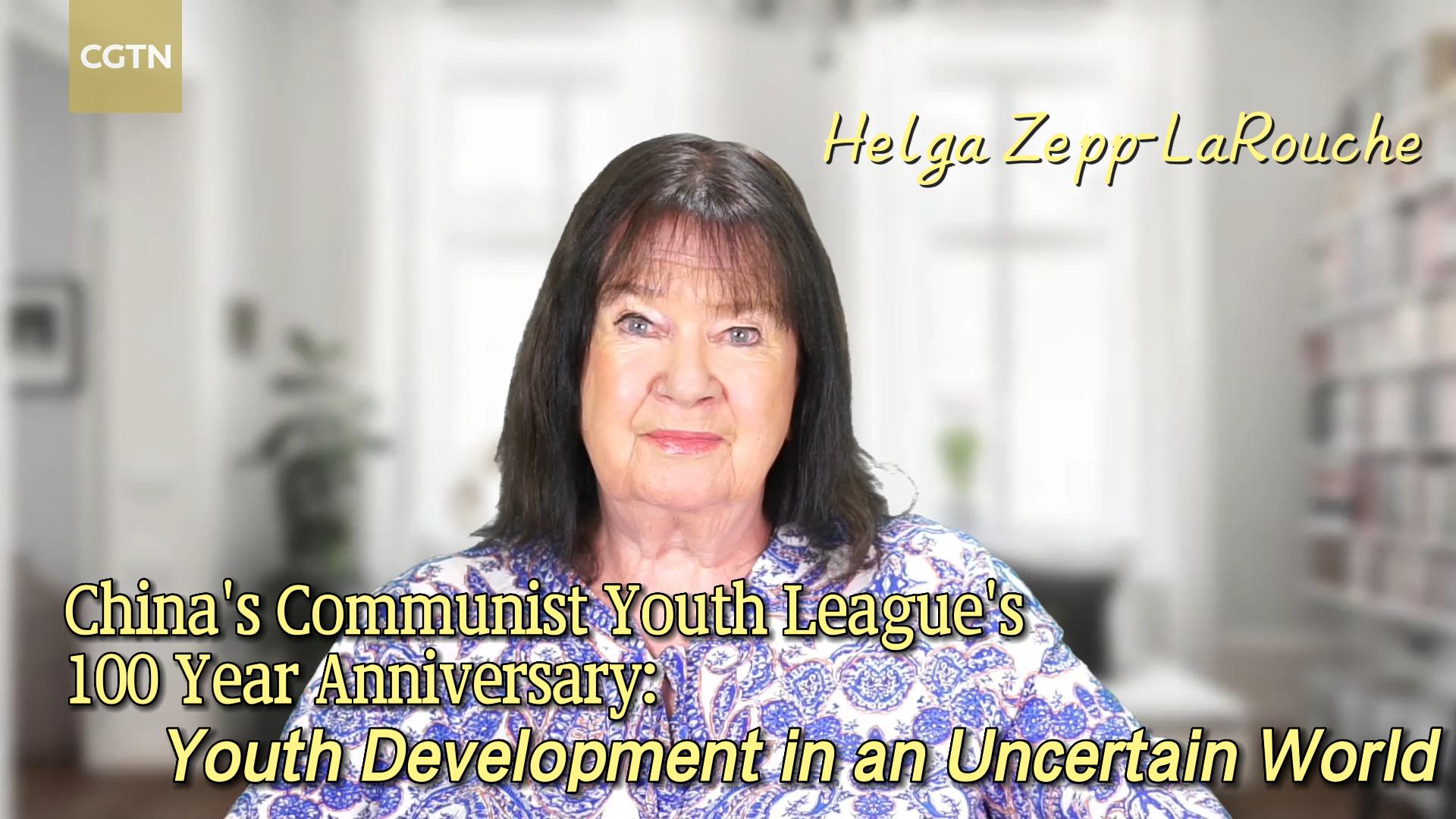06:13

"A nation can thrive and prosper only when it places hopes on its youth and maintains its youthful vigor," President Xi Jinping said at a grand event marking the 100th anniversary of the founding of the Communist Youth League of China in Beijing on May 10.
In an interview with CGTN, Schiller Institute founder Helga Zepp-LaRouche echoed Xi's words and fully endorsed the essential value of youth in a modern country's development and tackling global challenges.
Zepp-LaRouche pointed out that based on her experience, the Chinese youth are optimistic, and she predicted a future of increased youth involvement in global governance.
Zepp-LaRouche was one of the first foreign journalists to visit China in the 1970s. She spoke to and interacted with the Chinese in urban and rural areas, and saw for herself how China developed from an agrarian society to a modernized country within a short period of time.
She identified two elements as crucial to the vigor of the Chinese youth today: a thriving and developing economy and a favorable environment in which the younger generation grew up.
The vector of development is important in people's personality building, Zepp-LaRouche stated.
"If the vector of development is upward, people become optimistic."
Comparing Germany's economic recovery after World War II with China's sharp economic development since the late 1970s, she concluded that people who were born in these two prosperous eras typically developed a more optimistic personality.
In addition to a rosy future buoyed by economy, the Chinese ideology of nurturing children also contributed to the vibrant nature of youth today, said Zepp-LaRouche.
"Germany's Green Ideology regards children as a burden to the Earth, but the Chinese see children as full of potential and possibilities," she said. Naturally, a more favorable environment was made available for the Chinese youth to grow.
06:27

The year 2022 may not be an ideal one to welcome more young actors on the global stage, given an escalating Russia-Ukraine conflict, the lingering COVID-19 pandemic, and rising global inflation. However, Zepp-LaRouche remained optimistic of more youth contribution to global affairs, tackling multilevel challenges.
The mutual neglect of each other's interest by great powers is one of the primary causes of many threats today, and the youth could overcome the difficulties by setting aside ideological differences, Zepp-LaRouche said.
The foundation and fundamentals of international law support Zepp-LaRouche's vision of a world where countries live peacefully together and think of each other as collaborators rather than adversaries.
In the hope of bringing more "mutual benefits" to the global society at large, Zepp-LaRouche expected young people from all over the world to come together to create an international partnership for a "peaceful new paradigm."
"If young people unite together, I think it's a peaceful force we absolutely cannot ignore," she noted.
Zepp-LaRouche also mentioned two urgent issues that the youth today should think about: worldwide famine and global pandemic.
As 1.7 billion people are on the verge of starvation, she said young people should make a contribution to the doubling of food production, including the improvement of land productivity through science.
Furthermore, Zepp-LaRouche called for a more coherent and modernized world health system to combat the pandemic. She said it is critical to help poor countries, such as Haiti, Yemen and Afghanistan, build modernized health systems to contain the spread of COVID-19; otherwise, the pandemic may never end for the world.
Overall, Zepp-LaRouche voiced hope that the youth would shoulder more responsibilities in areas including training of medical staff.
"I think this mission would unite young people from the globe, and it is a powerful force for the good."
(Cover: Young volunteers help a resident check information on her mobile phone before taking a nucleic acid test in a neighborhood in Haidian District, Beijing, May 15, 2022. /CFP)

